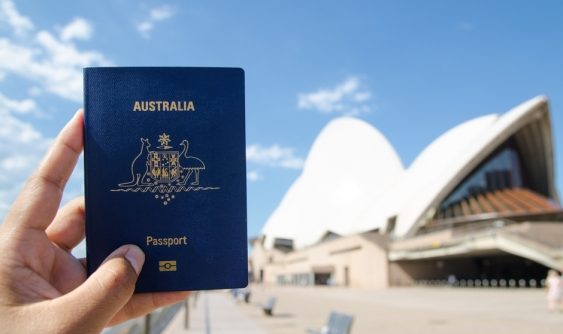By Hugo Hodge
A new, first-of-its-kind Australian permanent resident visa will soon be available to people from the Pacific Islands and Timor-Leste after it was successfully legislated in Parliament last week.
Up to 3,000 eligible people from the region will have an opportunity to live and work in Australia each year under the programme.
People will be chosen using a random ballot selection process – the first time Australia has introduced such a system for migration, similar to the United States’ Green Card Lottery.
The Australian government hopes it will grow Australia’s people-to-people ties in the Pacific and Timor-Leste, and encourage more cultural, business and education exchange.
The programme will begin in 2024, and while several details are still being finalised, here’s what we know so far.
Who is eligible?
You must be between 18 and 45 years old to enter the ballot for the Pacific Engagement Visa.
Applicants will need to be a citizen and hold a valid passport from an eligible country.
The Australian government is yet to confirm all the countries involved but has suggested the involvement of the Federated States of Micronesia, Fiji, Kiribati, Nauru, Palau, Papua New Guinea, Republic of the Marshall Islands, Samoa, Solomon Islands, Timor-Leste, Tonga, Tuvalu and Vanuatu.
Pacific Islanders with citizenship rights in New Zealand, the United States and France will also be eligible.
The government is still determining how the 3,000 spots will be split up fairly between the countries involved.
How much will it cost?
It is expected to cost just AUD$25 (about PKG$59 or FJD$36) to enter the ballot, which will be run by the Department of Home Affairs.
If you are unsuccessful, you can reapply for the ballot in later years by re-registering and paying the fee.
If you are successful, there are likely to be fees and costs associated with obtaining a permanent resident visa — not to mention airfares and the cost of moving countries — so now is a good time to start saving if you’re planning to apply.
What happens if I win the ballot?
If you’re lucky enough to be selected through the ballot process, you’ll need to apply for a permanent resident visa within a specific time frame.
Australia requires permanent resident visa applicants to undergo several checks.
Your English language proficiency will be tested with an online or at-home test through third-party providers such as the International English Language Testing System.
Australia has high health standards and will require applicants to undergo health checks which could include a general medical examination and tests for specific diseases such as HIV.
There will be a character check to assess if ballot winners are of “good character”, so those with criminal records may have their application rejected.
Primary applicants, or their partners, will need to secure a formal offer for ongoing work in Australia.
The government plans to establish a service which connects successful applicants with job opportunities and guides ballot winners through the permanent visa process.
How is this different to PALM?
The Pacific Labour Mobility Scheme (PALM) will continue to exist alongside the Pacific Engagement Visa.
The key difference is that PALM is a temporary labour mobility scheme designed to fill worker shortages in Australia, while the Pacific Engagement Visa is permanent and designed to grow the country’s Pacific diaspora.
PALM workers in Australia who are on temporary visas will be able to apply for the Pacific Engagement Visa ballot.
Can I bring my family?
Yes, applicants will be able to put their spouse and legally dependent children on their ballot.
This will be much-welcomed news as Pacific migration to Australia under the PALM scheme has reached all-time highs, putting strain on marriages and family relationships.
Stories of broken homes have become so common that one Fijian musician wrote a song about it called Ilavo ni Aussie Ilavo Mosimosi, which translates to The Aussie Dollar is a Painful Dollar.
The Pacific Engagement Visa will see immediate families relocating together.
The Australian government plans to offer a range of benefits to support the cost of raising a family and ease the financial burden of education and training.
Where can I live and work?
Whether you are chasing the bucolic lifestyle of Australia’s regions or the hustle and bustle of its cities, the decision on where you will settle will be yours alone.
Unlike the PALM scheme, which requires people to work in specific locations and industries, the Pacific Engagement Visa allows people to work in their desired location and industry.
The lottery system will ensure equal access to people of all skill levels, which the Australian government says will avoid brain drain from the Pacific and Timor-Leste.
Will I become an Australian citizen?
Australian permanent residency does not automatically give you Australian citizenship.
Assuming Pacific Engagement Visa holders will be treated the same as permanent resident visa holders, you should be eligible to apply for citizenship after living in Australia for a continuous four-year period.
As a permanent resident, you will have access to Medicare and social security such as JobSeeker.
However, there is a newly arrived resident’s waiting period for most social security payments, so it’s expected you can support yourself financially at first.
SOURCE: ABC/PACNEWS















